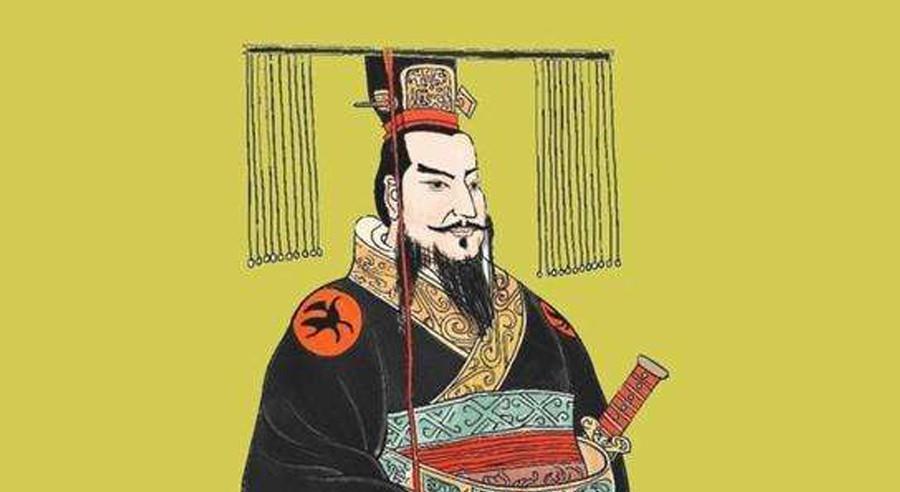Thirty and standing, forty not confused, fifty knowing the Mandate of Heaven, sixty ears smooth, seventy ancient rarity, in the ancient era when medical conditions were not developed enough, the average life expectancy of human beings will be much lower than in modern times. However, there is always a saying that in ancient times there were dynasties that buried the sixty-year-old alive. To this end, some stills of local operas will even be brought out to "corroborate" the so-called "imperial court regulations". So, have there been such regulations and dynasties in history?

Portrait of Qin Shi Huang
For this kind of statement, one of the most widely circulated is that after Qin Shi Huang ascended the throne, because of the large number of civil engineering, it was necessary to recruit a large number of laborers nationwide. However, those who were over sixty years old not only could not provide effective labor for the Qin Dynasty, but also consumed a large amount of grain in the Qin Dynasty. Therefore, Qin Shi Huang issued an edict: All those who do not die at the age of sixty will be buried alive, and if they do not follow, the Nine Tribes will be destroyed! I have to say that Qin Shi Huang's black cauldron is too porcelain! Although qin shi huang's tyranny is undeniable, even the black cauldron of burying the old man alive is on qin shi huang's body, which is really a bit ridiculous.
Take Li Si of the Qin Dynasty as an example. Li Sinai was a student of Xun Zi, a famous thinker during the Warring States period, and was later reused by Qin Shi Huang for playing a major role in the annihilation of the Six Kingdoms of Qin. After Qin unified the Six Kingdoms, Li Si, together with Wang Xuan and Feng Hao, agreed to honor Qin Wang Zheng as emperor and formulate a ceremonial system, which was worshipped by Qin Shi Huang as a chancellor. Li Si suggested demolishing the walls of counties and counties, destroying civilian weapons, opposing the system of sub-sealing, adhering to the county system, participating in the formulation of laws, and unifying the system of rails, writing, and weights and measures.
Portrait of Lisi
However, such a person who had great merit to the Qin Dynasty in his later years was replaced by Zhao Gao's lobbying and Zhao Gao's joint efforts to tamper with the will of Qin Shi Huang and establish Hu Hai as emperor instead. Later, Li Si was slandered for his defeat in the battle with Zhao Gao, and then beheaded by the waist. It is worth mentioning that Lisi was born in 284 BC and died in 208 BC, and his life expectancy was 76 years. If the Qin Dynasty really had the habit of burying sixty-year-old people alive, could Li Si still make waves in his old age?
And according to records, the life expectancy of the long-lived people during the Qin Dynasty even reached hundreds of years. For example, Zhao Tuo, the bodyguard of Qin Shi Huang, later established himself as king, but he lived much longer than Liu Bangdu, and even finally survived Lü Yan. These examples are enough to prove that "all those who are not dead at the age of sixty are buried alive" is a lie made up by some people in order to smear Qin Shi Huang.
Statue of Zhao Tuo
At the same time, the folk custom of crock pot graves (that is, filial piety to place their parents who have reached the age of sixty in a pre-built clay pot grave outside the village, send a meal once a day and add a brick, and stay until three hundred and sixty days later, the bricks block the window of the grave, so that even if the parents are buried, it is also called huajia burial, in their view, people will leave the crowd to die voluntarily at a certain age), but it is just some folk legends, which have never been confirmed by accurate historical information.
Moreover, the idea of being buried alive after sixty years is contrary to the idea of "loyalty and filial piety" that our country followed in ancient times. Since the Spring and Autumn Period and the Warring States Period, Confucianism has deeply influenced ancient thought and culture. During the reign of Emperor Wen of the Western Han Dynasty, Emperor Wen of Han also introduced a system of state pension for the people: anyone over a certain age could receive additional subsidies from the government. In the period of Emperor Wu of the Han Dynasty, it was even more "deposed by a hundred families and exclusive respect for Confucianism", and Confucianism became the orthodox education of the Han Dynasty. That is to say, in the ancient history of our country for more than two thousand years, no matter how the dynasties change, it has always pursued the fundamental "legal principle" of "filial piety to rule the world". Under the influence of such a doctrine, how can the phenomenon of burying the elderly alive appear?
Emperor Wen of Han served his mother
It can be seen from this that the burial of sixty old people alive is pure nonsense, and there has never been such a dynasty in history. Although it is not clear where and why such rumors come from, one thing is certain: as a member of the Chinese nation, "benevolence and filial piety" have been engraved in the bones since ancient times, and we must not only inherit the traditional virtues of the Chinese nation of filial piety and care for the elderly, but also carry it forward and set a good example for future generations to learn from.
References: "History", "Anthology of Twenty-Four Filial Poems of Quanxiang"